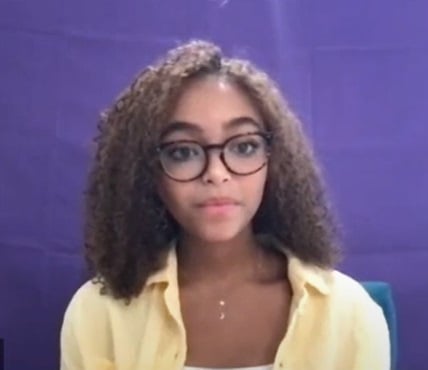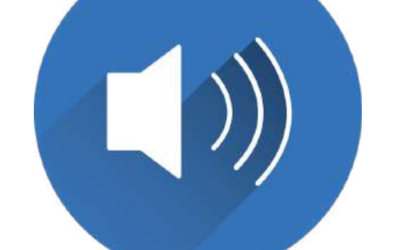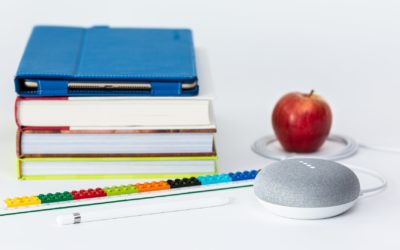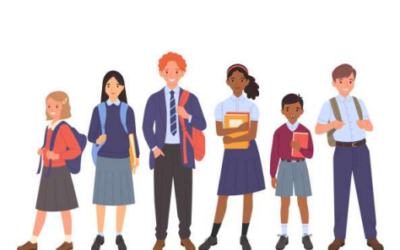Recently I had such a nice visit to the Seattle Art Museum. It reminded me of how well dyslexic strengths can be cultivated in the multisensory experiences that are museums. This past summer we had had a visit by Yuko Tsuji, a dyslexia advocate in Japan who...
Question: How to Help with Reversals [Premium]
Question: My middle grade student still has trouble with reversals. What can I do to help? Answer: Reversals can occur in different contexts, so understanding the different causes can help determine the best solutions. PERSISTENT LETTER REVERSALS Reversals can be a normal developmental finding up until the age of seven years. After that, severe difficulties with letter reversals may require intensive training or even therapy. Letter Recognition Persistent letter recognition problems are usually helped by a variety of multisensory sensory and mnemonic approaches. Programs like Zoophonics combine little memory associations and character drawings to help improve letter recognition. Hand visual mnemonics may help some children to distinguish between the letters b and d, as shown in the bed image: See more: Usually older students develop […]
Text-to-Speech is Getting Better [Premium]
If you haven’t been using text-to-speech lately, you’ll be in for quite a treat. Innovations in voice generation and cloning have made many free and premium (pay) voices better than ever. If you haven’t visited our Dyslexic Advantage online library lately (HERE), you may not know that we’re adding audio players to all our articles. After 160 issues (newsletter and premium combined), we have a tremendous library that we’ll be converting to playlists for those of you who prefer to listen. If you access the audio on our web pages, you can also adjust the speed. If you or your student had trouble with listening to text-to-speech in the past, you might want to retry text-to-speech apps or programs. They have improved dramatically and if […]
What’s the Connection between Auditory Processing and Dyslexia? [Premium]
It’s not uncommon when we speak to groups about dyslexia that someone asks why we are mentioning auditory processing when they (mistakenly) believe dyslexia is only about reading. In fact, there is substantial research literature about dyslexia and auditory processing difficulties – sometimes the problems can present with difficulty in learning phonemes, but other times it may affect sensitivity to auditory distractions, trouble listening to rapid or foreign speakers, and problems hearing in the presence of background noise. People who are dyslexic themselves or live with people who are dyslexic may know all about this. It’s a good example of how simplistic definitions can confuse rather than help. There’s been extensive work about auditory processing differences found in dyslexic vs. non dyslexic groups. The figure […]
New Ways to Hack Learning [Premium]
Almost every structured literacy program uses letter tiles and flashcards. The reason for this is that there are so many word parts and whole words to learn and the use of tiles and cards can give students visual support as they focus on various letters, letter groups, and their sounds while building up reading fluency. Some students may have difficulty learning with tiles and cards if the lessons or demonstrations proceed too quickly, or if working memory is easily overloaded or motor challenges make hands-on activities more difficult than less kinesthetic ones. Activities like word sorts may also provide a little physical activity that help students stay alert and engaged whereas more passive study may have them drifting off. For college kids and adults, flashcards […]
Julia’s Project : Boosting the Esteem of Elementary Kids with Dyslexia
As promised in the last newsletter, here's my interview with Julia de Montagnac of ColoringConfidence.com Julia shared her vivid memories of reading struggles in the 2nd and 3rd grades, and when the possibility of a service project came up, she wanted to interact with...
Audio Study for Drivers Tests
If it's Spring, then it must be time for driver training! Many Departments of Motor Vehicles are poorly equipped to meet the needs of the neurodiverse community and it may not be obvious how to access an audio version of the drivers manual (our state...
A Dyslexic’s Guide to Writing [Premium]
“We have so many tools to take care of the spelling, but not the tools to bring a fresh and new perspective to the world. Focus on your voice and your message, and the rest will follow.” — Tess Gadd Tess Gadd is an interface designer based in Cape Town who also writes a popular blog on Medium. She shared three strategies she uses to overcome challenges with writing. 1. PROOFREADING TOOLS “Enter Grammarly. I have been using the pro version for a year now, and it has made such a difference to my writing. Not only does it pick up mistakes, but it is also improves my ability to edit and proofread my own work.” 2. READING TOP TO BOTTOM AND BOTTOM TOP “When […]
Lip Reading and Dyslexia [Premium]
There is a long and diverse research history of dyslexia and documenting the auditory processing difficulties associated with dyslexia that hinder phonological awareness. It’s why dyslexic kids will struggle in school when everyone is required to wear a mask. The sounds are muffled, but also if the teacher is masked, then students cannot look at the teachers mouth – as an additional cue to what sound is being made. In a recent study published by Annals of Dyslexia, researchers made an interesting observation: “those children with dyslexia who are better readers attended more to the mouth while presented with a person’s face in a phonologically demanding condition.” More research needs to be done about this issue, be aware of helps like watching a video of […]
The Visual Poetry of Rebecca Kamen
My Pandemic Hack for Classes
Shelley Wear, a long-time volunteer on our Dyslexic Advantage editorial team shared these pandemic hacks for her classroom. Thanks Shelley! "The struggle is real to make sure students understand what you are saying with a mask on. I purchased a personal amplifier...
Dyslexia Advocacy: Say Dyslexia 2.0
From Chalkbeat's story, "NYC plans to screen nearly 200,000 students in the early grades to uncover struggling readers. Then what?" "In a massive bid to gauge reading skills following COVID-related learning disruptions, New York City’s education department is...


![Question: How to Help with Reversals [Premium]](https://www.dyslexicadvantage.org/wp-content/uploads/2023/01/reversals-300x250.png)
![Text-to-Speech is Getting Better [Premium]](https://www.dyslexicadvantage.org/wp-content/uploads/2023/01/Phone-and-speech-bubbles-400x250.png)
![What’s the Connection between Auditory Processing and Dyslexia? [Premium]](https://www.dyslexicadvantage.org/wp-content/uploads/2023/01/Auditory-Processing-and-Dyslexia-Dyslexic-Advantage-1.jpg)
![New Ways to Hack Learning [Premium]](https://www.dyslexicadvantage.org/wp-content/uploads/2023/01/New-Ways-to-Hack-Learning-Dyslexic-Advantage-1.png)


![A Dyslexic’s Guide to Writing [Premium]](https://www.dyslexicadvantage.org/wp-content/uploads/2022/06/Screenshot-Tess-Gadd-from-LinkedIn-299x250.png)
![Lip Reading and Dyslexia [Premium]](https://www.dyslexicadvantage.org/wp-content/uploads/2021/11/lip-reading-400x250.jpg)
















